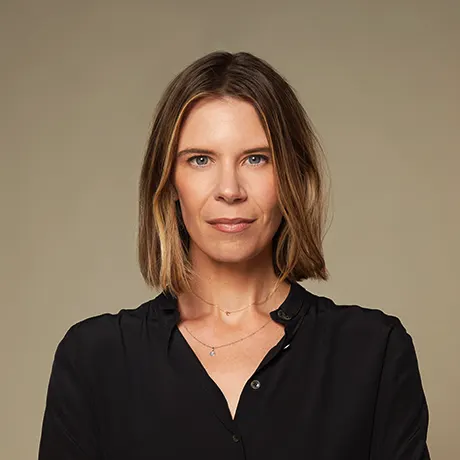ADHD, doom bags, and squirrels in the head (Shaun’s story)
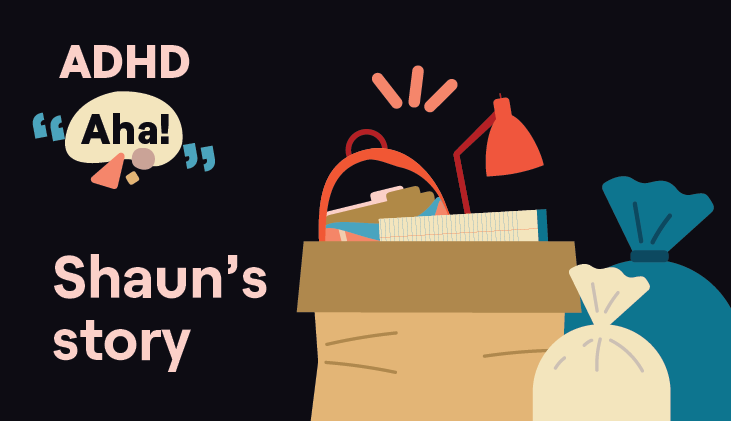
Stay in the know
All our latest podcasts delivered right to your inbox.
When Shaun saw a clip of someone describing ADHD as “squirrels running on a conveyor belt in your brain,” his ears perked up. Then his wife discovered his doom bags. (“Doom” stands for “didn’t organize; only moved.”) He started thinking about his trouble with organization and other signs of ADHD, and he decided to get evaluated.
Now just three months after his ADHD diagnosis, Shaun, a listener who wrote in, is reflecting on how ADHD impacted him as a kid. He remembers feeling bored all the time and being labeled a slacker. Also in this conversation: Shaun’s love for graphic design and how he’s coping with ADHD at work.
Related resources
Episode transcript
Shaun: I had learned through watching TikToks that I thought maybe I had ADHD and my wife was a little bit skeptical, not that she didn't believe me, but she went down into the garage to clean the garage and she found all of my tote bags, which had items that had been making its way from one bag to another bag every time I had a project. So, that was just bags of random stuff. And she came back upstairs and was like, "Yeah, it was much worse than I thought it was. I think you should probably go talk to somebody."
Laura: From the Understood Podcast Network, this is "ADHD Aha!," a podcast where people share the moment when it finally clicked that they or someone they know has ADHD. My name is Laura Key. I'm the editorial director here at Understood. And as someone who's had my own ADHD "aha" moment, I'll be your host. I'm here today with Shaun Noon. Shaun is a creative manager for a grocery chain in Pittsburgh. He's also an "ADHD Aha!" listener who wrote in. Thanks for being here, Shaun.
Shaun: Yeah, thanks for having me.
Laura: So, you were diagnosed two months ago, is that right?
Shaun: About three now, Yeah. Three months.
Laura: Three months ago now. So, that's fresh?
Shaun: Yeah. At the ripe age of 49 years old.
Laura: Let's get right into your "aha" moment, then. Tell me what was going on. Three months ago, four months ago, prior to your decision to get evaluated. What took you there?
Shaun: So, my wife likes to watch TikToks and, you know, I always thought it was a bunch of kids on there showing their food or dancing or doing something silly. But I decided to get on there just to check it out, just because it's kind of part of my job is to know social media. And for some reason, I got kicked this ADHD clip of this guy talking about his symptoms and described it as squirrels running a conveyor belt in your brain.
Laura: Squirrels running on a conveyor belt in your brain.
Shaun: Like passing information on the conveyor belt. And like they don't realize something's important until it passes through several times on the conveyor belt. And I was like, "That sounds kind of familiar to me." And then I went and watched a few more of his things, and I was like, "This is really weird. Everything he's talking about is something that I've experienced in my life."
Laura: Why did the squirrel thing resonate? Can you give me an example of when you felt that way?
Shaun: Just because, you know, if there's too many things on the conveyer belt I shut down. I can't, you know, function. So, it's more about like people will give you information it'll be on the conveyor belt, and you won't necessarily notice it until it passes through several times and you're like, "Oh, that's important. I should probably remember that or write it down or do something with it," that information.
Laura: Do you experience that at work or at home or both?
Shaun: Yeah, I mean, all through school I was a terrible student. It was always the same thing, teachers saying, "Hey, he's a great kid, you know, he's bright. He just needs to apply himself." It was like, every single teacher would say that.
At work, it's like, you know, being at meetings, like, I can't concentrate on fully unless I am the person that's presenting or giving the information. Unless it was something, a project that I was really interested in. I could say like thankfully now that I education, it's a lot better. I don't want to get fired from my job because I don't pay attention in meetings. But it's not that I wouldn't pay attention, you know, my mind would wander and then I'd have to come back into what I was doing. Details, all that kind of stuff was really difficult.
Laura: So, the TikTok story that you mentioned, that's not the end of your "aha" moment. Your wife noticed something.
Shaun: Yeah. So, I had said to her, you know, "I got these TikToks that were thrown my way, that talk about ADHD." And I was like, "I think I might have it." She's like, "Oh, everybody kind of gets distracted." And, you know, I was like, "I don't, I think this is, you know, I think I should get this checked out."
And I'm usually the one to like, handles the garage because, you know, I handle the tools and I do a lot of the construction stuff or whatever. And we have income property, a duplex, and every time I would go over there, I'd put stuff in the bag and get home and be like, "I'll deal with that later," and set it down. And then I would have to go out again and then take some stuff from one bag and take stuff from another bag and put it in another bag.
So, she went down to the garage to organize because she was like, "Oh, I'm going to do it this time." She went down and she came back up like maybe an hour and a half later and said, "Wow, I had no idea it was that bad. There are doom bags everywhere," which is "don't organize, only move" or something like that.
Laura: Didn't organize, only moved. Yeah.
Shaun: Yeah. And she was like, "Yeah, I think you should probably talk to somebody." So, that was her "aha" moment, I guess.
Laura: Yeah. And also, an "aha" moment for you. I'm kind of ashamed to admit that I had never heard the term "doom bags" or "doom piles" until you wrote in to me. So, I'm grateful for that. We work with a lot of experts that Understood. I haven't spoken to any of them about whether or not this is an official sign of ADHD. I know a lot of people on TikTok and other platforms are talking about doom piles and doom bags as an ADHD symptom, but it definitely tipped your wife off, and then maybe you off a little bit more about maybe some trouble with organization?
Shaun: Yeah, it's definitely an organizational thing. You know, it's like any time you're in class and, you know, they're teaching something, my brain would just shut down like, I like I can't even focus like, I want to. I want to do well in school, and I want to, you know, get good grades, but like, my brain just wouldn't allow me to do it. Same thing, it's like I get done with the project and everything's in the bag. I don't want to spend the time putting the stuff back in its place.
Laura: That term Doom pile or Doom bag, that's an acronym that stands for Didn't organize, only moved, but the word doom...
Shaun: Seemed very gloomy.
Laura: Yeah. Did these feel gloomy to you? The bags?
Shaun: Yeah. Because I've had doom whatever in my life forever. You know, my room was my doom room. You know, my office is kind of my doom room now. And, you know, I have drawers that are doom drawers and I'm getting better. And actually, the first time that I was on medication, which was probably two months ago, a month and a half ago, the first day I looked at my art table and paints and markers and all that stuff, and I was like, "I'm going to do something about this." And then literally an hour and a half later, I had a chest organized. All the markers were together, all the paints were together, all the brushes, pencils, everything was organized. And I was like, "Oh my God, who is this? How did this happen?" And I did a video and I sent it to my wife, and I said, "Who is this person? Is this how people normally feel? Is this like what the typical person is? Because I can't believe I just accomplished this."
Laura: Holy shit, I have chills. I don't think, I don't. We don't usually, because I don't usually say, Jessamine, holy shit, on the show, but we can keep it this time because that...
Shaun: You can bleep it out.
Laura:...I mean, you know, we're family-friendly, but still, this is it is kind of a holy ass moment.
Shaun: Yeah, it gave me chills doing it. And like, when I was finished, I was like, "I can't believe I went through my whole life without help like this." So, it was very emotional. It gave me a sense of vindication that it wasn't me that was the issue this whole time. You know, like with my grades and people telling me, "You got to try harder," you know, "Pay attention more," whatever, it was, that vindication.
And, you know, obviously, there was a part of it that was "What would have happened if I was on this since I was 16," or whatever. But that was fleeting because I'm still pretty successful. I have a family and I have a home and I have a job. And so, I didn't dwell too much on what could have been.
Laura: And it's all really new to you as well.
Shaun: Yeah, I'm still digging, still digging a lot.
Laura: I'm not trying to imply that it's going to get worse or anything. I actually don't think so. I think it's going to just get better and better. But I think that people who haven't gone through this may scoff at the idea of like a grieving process when you get an ADHD diagnosis, but it's so real. Every single person I talk to on this show talks about it.
Shaun: It's kind of frustrating. I mean, when I was in school, ADHD was just on the verge of being talked about really, I guess, like late eighties, early nineties. But you would think that somebody would have been like, "Yeah, he's a good kid. He's not like, he's not a troublemaker, anything. So maybe we should look into this." But you can't go around and blame people for something I couldn't even recognize, and it was me like, why couldn't I see the signs? you know.
Laura: After the spotting of the doom piles and bags. What did you do next? Did you and your wife have a conversation? Did you go straight to your doctor? What happened?
Shaun: I found the therapist. And since things are so crazy with COVID and so many people needing mental health help, she would take information and go back to the psychiatrist and then they would give recommendations. So, after a few sessions with her and talking to her just like, you know, she did the short questionnaire —it was like 10 minutes — and she was like, "Yeah, I think you might have it. And here's some pamphlets, and a book and you can read this."
And I was like, "No, no, no, no. I'm like 49 years old, going to be 50 soon, and I don't think that I'm going to be able to crack these masks that I've been wearing for most of my life." I was like, I think I want a medication or at least try it and see if it helps me. And she said, "OK, well, let's do it over a couple of sessions."
And I did the long test and after the two and a half sessions or whatever, she came back and was like, "Yeah, you hit every mark on this, except for the hyperactivity, although it's probably in your brain, not, you know, physical hyperactivity." And she's like, "Yeah, we're going to put you on something."
And it was like, wow. Like it was, you know, a revelation. It was like, it's real, you know because I've talked to people, friends, and family members and they're like, "Well, I don't know, You don't seem like you would be ADD, like I've known you your whole life, you don't have to like..." and the thing for me, it's like "You're not in my brain, you don't know what's going on."
Laura: Looking back, what were some of your ADHD signs growing up?
Shaun: Just not being able to concentrate on school is the huge one. And even just conversations with people, like daily conversations, like typical stuff, like "How's the weather" kind of things, like, I'd just, I would blank out and I'd be in my own brain thinking about something else.
And it was frustrating for me because, you know, I'm a pretty empathetic person. I would say, "Why can't I give these people the proper attention that I want to give them?" Because I do care about these people, and it would make sense that I would want to listen to what they have to say. But at the end of the day, my brain was just like, "Nope, we got better things than, you know, doop doop doop doop do do," my brain is like running in a circle.
Laura: The squirrels.
Shaun: Yeah, the squirrels that are going like on a carousel with like five different things going at once.
Laura: Do you think that that dialog was only in your head the like, "I want to listen. I care about what people are saying," or do you think that other people also noticed and did anyone ever say anything to you?
Shaun: Yeah, I mean, I think for sure my wife, I mean, she's had to deal with my distraction and incapability of remembering things. So, for sure her. But I masked really well, I really put on a face and made it seem as if I was listening if I wasn't. It's just something I've, you know, I learned to do as I went along in life. But I don't think there is anything where people are like, "Hey, are you not paying attention to me?" like, you know.
Laura: Did you ever get bored?
Shaun: All the time, like school like the boringest, like I was like, "Why am I here? What am I doing? This is crazy." So, my outlets were art and skateboarding and, you know, that's where I was getting my dopamine, you know, the thrills. And, you know, I would just do it all day long at school.
Laura: Did you study art in college?
Shaun: Yeah. I didn't know what I wanted to do when I went into college and it took me forever to get there. Like, I went through community college, I fell out of one school, and then I finally got to a school that I got into after three years of community and I didn't know what I wanted to do. I didn't want to be a starving artist, you know, I didn't want to sit in a one-room studio and eat, you know, canned beans or something.
So, I stumbled on a graphic design class, and it really resonated with me because when I was a skateboarder, you know, the advertisements really spoke to me just because they were so crazy and different, like from what you would typically see in magazines. So, it really intrigued me to kind of do that and be creative and still get paid to be able to eat.
Laura: Our listeners can't see your background, but I get to soak it in and...
Shaun: Yeah.
Laura: ...just, I want to kind of describe it to folks who are listening. I see a guitar on the wall, I see more, I see an electric guitar and an acoustic guitar. I see paintings, I see sculpture, I see a ton of records, music. I see a skull, which I think is kind of rad. It's just, music and art, I mean, it's just permeating your space. I can just feel like kind of the artistic energy.
Shaun: Yeah, this is like the organized chaos, I guess. Like my wife has all the other rooms that she decorates, and this is the one room I have. It's my office and art space.
Laura: It looks neat.
Shaun: You can't see my desk.
Laura: Like like neato, but it looks neato and it also looks neat, so.
Shaun: It's funny because when people come in here, like in our house, there are always, gravitate to this room and they're like, "What is going on?" Because there's so much to look at. And that's why I like it. It's all inspiration and things that I like.
Laura: What art speaks most to your ADHD symptoms and feels the best to create or to look at based on the way that your brain works? Or to listen to, anything.
Shaun: Yeah, I don't know. It's like I am all over the place with music and art. Like I love all kinds of art, you know, tattoos. I have tattoos, all kinds of tattoos. I like anything that's new and trying to create something that's intriguing, that captures somebody's attention. I think that's why I like graphic design so much, because in a sea of ads that are fed all the time, like trying to penetrate that is a challenge.
And I think any time that I can get somebody to stop scrolling and go, "Wow, that's different," or "That's interesting" or whatever, then I think that's what I'm kind of going for. Even in my own personal art, it's like if I create something, I want somebody to stop and go, "That's different. That's cool. I like that."
Laura: When we chatted prior to this interview, you mentioned something about being labeled a slacker. Can you talk to me about that?
Shaun: Yeah, it's a lot about like finishing things or I'll get excited about doing something and I'll get started and I'll get into the meat of it, and either I'll get too frustrated, or I'll just get too bored with wanting to finish it.
So like, details are an issue, and all through school it was like really difficult for me because I know I'm not a dumb person, but when you're a senior and you're sitting in a freshman class, you know, it's really humiliating for somebody. And the people looking at you are like, "Oh my God, this guy's got to be a dunce. He's a senior and he's in a freshman class."
And then I, you know, seventh grade, I went to summer school, and eighth grade I failed completely and had to do it over. So, there was a lot there that from an outside perspective would show somebody, "Hey, this guy doesn't have his crap together, you know, like he's probably a slacker."
So, I, part of it was like, I think I just said, "You know what? You want me to be a slacker? I'm going to be a slacker." And I would skip school and I would go skateboarding all day long instead of going to school or whatever it was, like I just skipped out on it.
Laura: That makes a lot of sense. I can tell that's a painful thing to talk about. And so, thank you for your candor.
Shaun: Yeah, I think, you know, I like being open about this, especially because I went through my life and I didn't get the chance to try to mediate this at all. And, you know, if this opens up some people's eyes, then, you know, that's positive for me.
You know, I'm obviously going to share this whenever it goes live, and I'm going to put it on my social media. I'm not ashamed of, you know, my diagnosis. If anything, like I said earlier, it's a vindication of who I was in the past or how I was seen. That's not who I am.
Laura: Thank you for spreading the word. You want to workshop some titles of this episode with me, since you're a content creator as well? I've got one in mind. Maybe we can talk about it later.
Shaun: 50-year-old slacker.
Laura: 50-year-old slacker...
Shaun: gets diagnosed.
Laura:...and his insurmountable doom bags.
Shaun: Yeah.
Laura: We love to laugh about it, but it's real.
Shaun: The number one thing to get me through a lot of stuff.
Laura: I mean, you're clearly not a slacker, though. I mean, I hope you know that, right?
Shaun: Yeah, I take on probably more than I should.
Laura: And you have, sounds like you have a great job. And you have a family, so that's already too much for most people, frankly.
Shaun: And the job has been amazing. Like, you know, because, you know, I started off in graphic design and I saw, say, six, seven years ago the opportunity that we should probably be doing like video in-house instead of paying agencies, especially for social media and stuff. So, I kept chirping and saying, "Hey, we should do this...", just like "Nah, we don't have a budget," or whatever.
But finally, years later, we're getting a studio and we've been filming stuff. And so, it's coming along. And it was nice for me because, you know, ADHD people get bored, and they need to switch it up. And, you know, it was a good turn in my career to keep me engaged and do something different.
Laura: How has work been going for you? Have you felt a change? Did this, what you're just talking about, did that happen before or after your diagnosis?
Shaun: Yeah. When I started talking about changing and doing this, it was before my diagnosis. So, yeah, it's been going good like with the medication for sure, because I feel like I am, you know, a much more present not just at work but in my family's life, my wife's, my kids'. Like, not that I wasn't present, but it's like I'm more engaged, I guess you could say, just in conversations and all that stuff. I think a lot of depression anxiety was bound to my inability to be mentally present in a lot of stuff.
Laura: Interesting. So, like feeling depressed, feeling anxious as a result of ADHD. I mean, it goes so many different ways. It can become comorbid, one can lead to, you know.
Shaun: Yeah. And like even coming home after a stressful day and just lay on the couch like, I can't do anything, I'm done. Like, I'm tapping it out, you know, when you still have dinner to make and talk to your family about how was your day? And I'm like, I can't do it, you know, which is, really frustrating.
Laura: I've had many nights when I've cried coming home and just melting down or just like, kind of breaking down at the thought of having to focus on one more thing and like dinner and like the stress of the bedtime routine.
Everyone who listens to the show is probably so sick of hearing me talk about this. This is like my number one complaint. They probably think that I don't enjoy being with my children or...
Shaun: Spends no time with her kids and she orders pizza all the time.
Laura: This woman just completely opts out of parenting and complains about her children. No, I think the world of my children, just for the record, I love being with them.
Shaun: But you do order pizza all the time.
Laura: But we do, yeah. Yeah, we do, chicken nuggets. What about with your wife since you've been getting ADHD treatment? I think you mentioned before that you would interrupt her sometimes. Are you still doing that or...?
Shaun: Yeah, I've gotten better. Like, I definitely don't feel the need that I, I'd be able to keep the thought that I have in my head to respond whenever she's finished. Or people at work even like, you know, there's some people at work that they'll talk, and I can't wait for them to finish because I feel like they're taking too long and like, "I got to get this out or I'm going to forget."
Laura: Totally. Oh my gosh, I get so impatient, John. Even with my medication...
Shaun: And I feel bad.
Laura: ...it's hard.
Laura: I feel bad, too, But I'm just like, "Shut up, shut up, shut up. I already know what you're about to say. I already know what you're about to say. Stop."
Shaun: Right, like you're like two sentences into the conversation before they're even thinking about it. Like, "I know how this is going to go."
Laura: And it's not because I'm smarter than they are. It's just because, like, the conveyor belt, to your point, it's just like going, going, going, going. And I'm like, "I already mapped out this entire conversation before it even started, and I know I'm going to miss something important and rushing you and interrupting you, but I just I can't help it."
Shaun: That's just the way that we have coped to, like, figure out how we're going to stay in the conversation. Because if we don't think ahead, then we won't be able to answer or whatever.
Laura: Totally. Do you ever talk about it, I don't know what your work structure is like or what your relationship is like with your boss, and I imagine you're not super keen on talking about all of that on the show, but have you told your boss that you have ADHD?
Shaun: Yeah, I did. You know, it's funny, he's a great guy and he's actually new. And the first time that I met him in person at the office, because we're from a lot, and we just started talking, and like he and I just kind of unloaded everything. Like I was like, "Oh yeah, I have anxiety and depression and ADHD and I'm on this medication," and he was like, "Wow," you know?
But it was good. It was like the conversation kind of just flowed. At the end, I was like, "I am so sorry, I just dumped all on you." But he was like, "No, that's really good. Thank you so much for being honest and open with me." So, it's been good.
Shaun: I think any time we can be honest about our mistakes or our flaws or whatever, then I think the more that people will appreciate it and not look past it, but, you know, understand your scenario and your personality and your situation more.
Laura: Yeah, I totally agree. I ask because Understood.org, where I work, we're interested in, you know, talking more with adults about self-advocacy in the workplace, once they know that they're struggling with something with or without a diagnosis. And I'm just curious of what that has maybe look like for you when it comes to your ADHD.
Shaun: The company I work for is really big on inclusion and diversity and the care of their employees. I have not delved too much into everything that they offer. I know they have groups that help with some things that people may be going through or whatever, but I think it would be good to talk to somebody about people that have ADHD or maybe on the spectrum or whatever. Having a group for them, support group, because it would probably be pretty beneficial and that would probably give the company some insight into the employees that are dealing with it.
Laura: Shaun, it's been so great to talk with you. Is there anything else that you want to chat about?
Shaun: I think the big thing for me is, for doing this, is just for advocacy and trying to kill the stigma of mental health issues. I know a lot of people that have mental health issues that I love dearly, and I think it's important for people to have empathy, which our society is lacking a lot right now. And the more we can speak to these issues and tell our stories, the better it's going to be for the rest of them.
Laura: Thank you so much, Shaun. It's been so nice to talk with you today.
Shaun: Thank you. I really appreciate it.
Laura: You've been listening to "ADHD Aha!" from the Understood Podcast Network. If you want to share your own "aha" moment, email us at ADHDAha@understood.org. I'd love to hear from you. If you want to learn more about the topics we covered today, check out the show notes for this episode. We include more resources as well as links to anything we mentioned in the episode.
Understood is a nonprofit organization dedicated to helping people who learn and think differently discover their potential and thrive. We have no affiliation with pharmaceutical companies. Learn more at Understood.org/mission.
"ADHD Aha!" is produced by Jessamine Molli. Say hi, Jessamine!
Jessamine: Hi everyone.
Laura: Briana Berry is our production director. Our theme music was written by Justin D. Wright, who also mixes the show. For the Understood Podcast Network, Scott Cocchiere is our creative director, Seth Melnick is our executive producer, and I'm your host, Laura Key. Thanks so much for listening.
Host
Latest episodes
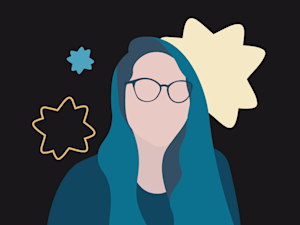
April 16, 2024
ADHD coach Jaye Lin was a gifted kid with undiagnosed ADHD. Now, she’s building communities and helping others cope with ADHD burnout.
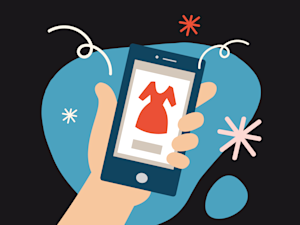
April 2, 2024
Writer Paulette Perhach had money coming in but struggled to keep it in her bank account. An ADHD diagnosis brought her struggles into perspective.
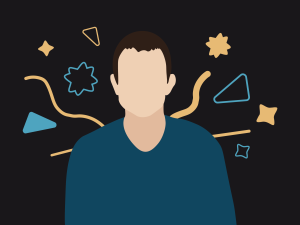
March 19, 2024
Eye to Eye founder David Flink is fighting the “just try harder” myth surrounding ADHD, dyslexia, and other learning and thinking differences.
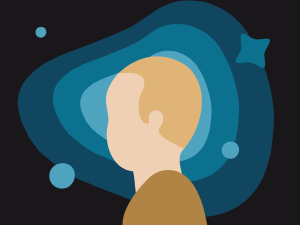
March 5, 2024
Peter Jones used to feel better saying he had a hearing problem rather than considering ADHD. Now, he knows he has ADHD and isn't afraid to say it.
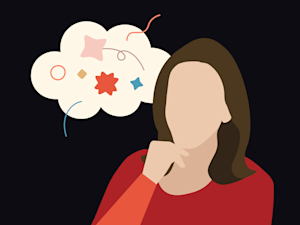
February 20, 2024
Before her ADHD diagnosis, ADHD coach Emily Weinberg thought she was just lazy. But in reality she was stuck in “analysis paralysis.”
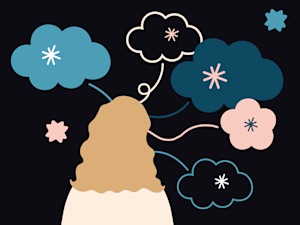
Carol Blumenstein was called an unteachable student. Now, she knows she has ADHD and dyslexia, and supports her five kids who learn differently, too.

January 23, 2024
Executive coach, actor, and former criminal defense attorney Ernest Anemone shares his ADHD story — and why he questions the term “attention deficit.”
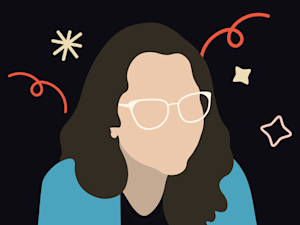
January 9, 2024
ADHD and post-traumatic stress disorder (PTSD) symptoms can look similar. And they can morph into what Hannah calls “a trauma ball of blame.”
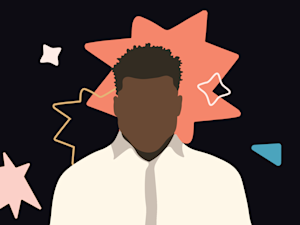
December 26, 2023
Livingston Steele was diagnosed with ADHD about a year into working at Understood.org. His experience and work have given him immense empathy for people with ADHD.
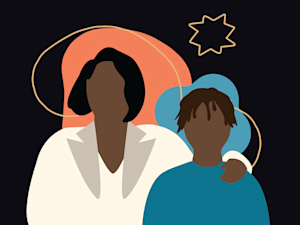
December 12, 2023
Wendy Zanders is a decluttering coach with ADHD. Find out how she got into organizing, and get a few tips for yourself.
